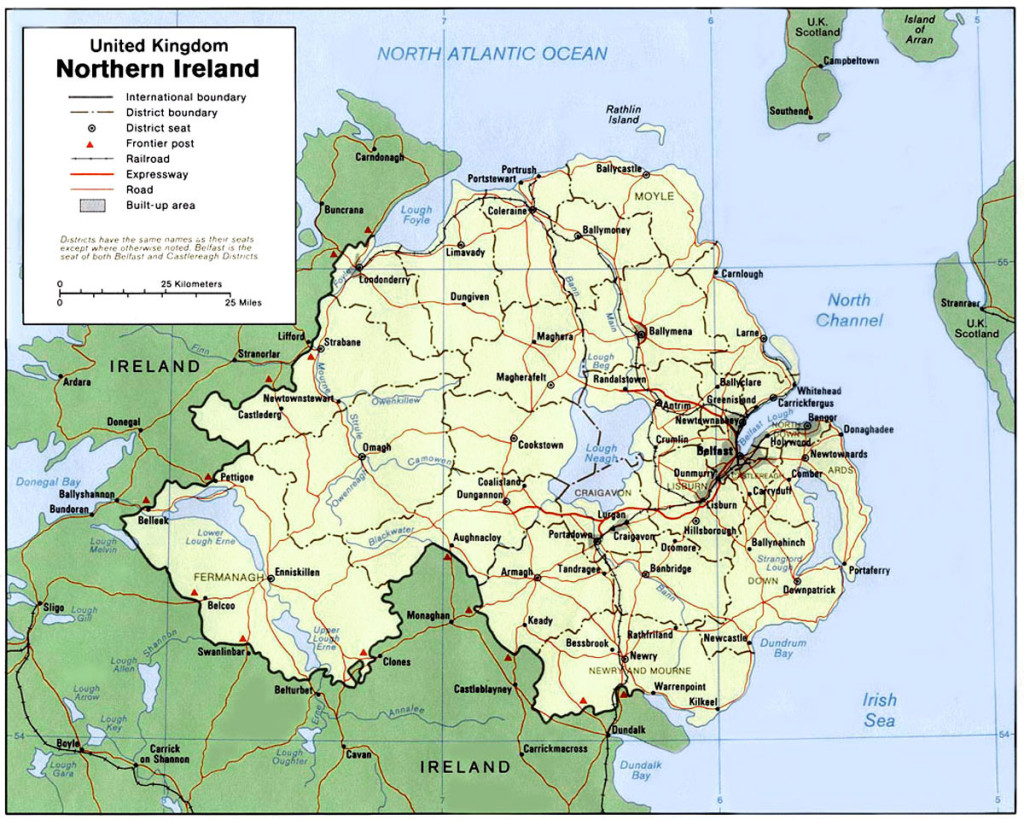
Proposal: Establishing an Infrastructure Commission for Northern Ireland
Executive Summary:
Northern Ireland lacks a dedicated, independent body to assess, prioritise, and advise on long-term infrastructure needs. Establishing an Infrastructure Commission for Northern Ireland (ICNI) would bring strategic direction, transparency, and resilience to infrastructure decision-making. Crucially, it would prepare Northern Ireland for deeper all-island infrastructure integration—a key strategic opportunity in the event of future constitutional change.
Rationale:
- Policy Continuity: A commission would offer stability and vision beyond political cycles or departmental boundaries.
- All-Island Readiness: With growing economic and environmental interdependence across the island, Northern Ireland must develop infrastructure that is compatible with cross-border systems—especially in energy, transport, digital, and wastewater.
- Independent Expertise: Like similar bodies in Scotland and England, the ICNI would provide impartial, evidence-based guidance to the Executive and wider stakeholders.
Scope and Functions:
The ICNI would:
- Develop a 30+ year infrastructure strategy aligned with net-zero goals and potential all-island harmonisation.
- Produce regular infrastructure assessments and delivery reports.
- Advise on project prioritisation, investment sequencing, and public value.
- Support cross-jurisdictional collaboration where mutual benefits exist.
- Engage the public, industry, and civic society in infrastructure debate.
Key Strategic Schemes – Case for Long-Term, All-Island Integration:
- Sewage and Wastewater Network Upgrade
NI’s wastewater system is under severe strain, with many treatment works over capacity. A commission could help coordinate upgrades to meet environmental standards and integrate future systems with those in the Republic of Ireland, particularly in border regions. - Electricity Transmission and Grid Expansion
The island’s electricity market (I-SEM) already operates cross-border. Grid reinforcement, offshore wind transmission, and interconnectors will require long-term, coordinated planning to maximise security and sustainability across the island. - Sub-Regional Growth Infrastructure Strategy
A commission could oversee place-based infrastructure planning for towns and rural areas beyond Belfast—linking housing, transport, digital, and services in support of regional balance and better North-South functional connectivity. - All-Island Rail and Transport Integration
Major transport projects such as the Enterprise rail upgrade, A5 dualling, and cross-border active travel routes should be seen through the lens of long-term economic and environmental integration. The ICNI could work closely with authorities in Dublin to maximise shared gains. - Strangford Lough Crossing (SLC)
This strategic scheme would connect the Ards Peninsula and Lecale Coast, unlocking regional potential and forming a key east coast transport link. It represents an opportunity to enhance east-west and all-island accessibility while reducing regional isolation. For more details, visit:
www.strangfordloughcrossing.org
Governance and Structure:
- Independent commissioners with expertise across infrastructure sectors.
- Non-departmental body reporting to the NI Executive and Assembly.
- Transparent and accountable, with annual reports and public consultations.
Precedents:
- National Infrastructure Commission (England) – strategic, independent, and influential in UK-wide policy.
- Infrastructure Commission for Scotland – established 2019, successful in shaping just transition and climate resilience strategies.
Recommendation:
Establishing the ICNI would be a timely and future-proofed decision. It would place Northern Ireland on equal footing with neighbouring jurisdictions and ensure that the region is ready for both current investment needs and longer-term constitutional evolution.
